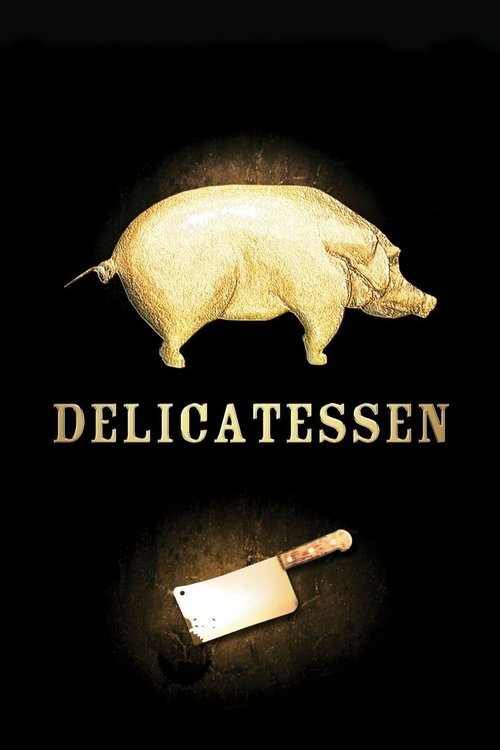
Title: Delicatessen
Year: 1991
Director: Marc Caro
Writer: Marc Caro
Cast: Dominique Pinon (Louison), Marie-Laure Dougnac (Julie Clapet), Jean-Claude Dreyfus (Clapet), Karin Viard (Mademoiselle Plusse), Ticky Holgado (Marcel Tapioca),
Runtime: 99 min.
Synopsis: In a post-apocalyptic world, the residents of an apartment above the butcher shop receive an occasional delicacy of meat, something that is in low supply. A young man new in town falls in love with the butcher's daughter, which causes conflicts in her family, who need the young man for other business-related purposes.
Rating: 7.301/10